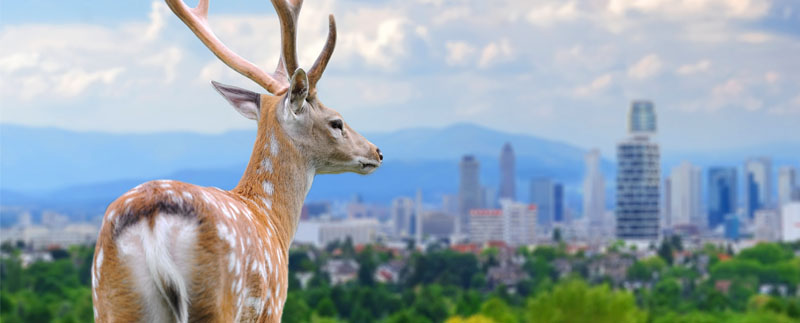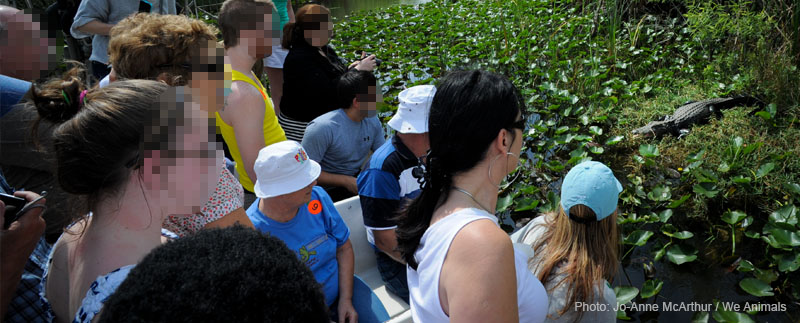Tag: Build Back Better
Join the Sustainability Revolution!

“In the midst of every crisis, lies great opportunity.” – Albert Einstein
…
This quote has sprung to mind several times over the past seven months and is perhaps now more poignant to the Travel and Tourism sector than most. According to the World Trade Tourism Council in 2019, prior to the outbreak of Covid-19, the sector supported 330 million jobs globally, and now as we hit the difficult winter season, we are likely to suffer 197.5 million job losses.
This is indeed a time of unprecedented global crisis, a time we switch to survival mode, to save our jobs, and our industry. However, there is STILL opportunity. Not of increased profit and market growth, but of increased global determination to fight an invisible war and build back with a greater respect for nature.
Nature is indeed ‘everyone’s business’. According to the Business for Nature Initiative, over half of the world’s GDP is reliant upon it, and through unsustainable supply chains, we are drawing away more than can be replenished.
At no time in our history has consumer priority towards safety and ethical standards been higher. People are putting their trust in businesses to make things better, and it is suggested that global brands have more influence over public conscious than our political leaders. Through Business for Nature, corporations are calling on governments to adopt policies to reverse nature loss in this decade. This is a journey I am proud to be a part of. This month ANIMONDIAL was honoured to reach the finals of the Lloyds Bank National Business Award for Social Impact for our work to galvanise the amazing work of NGOs and travel businesses through the crisis.
At this time of increased global unity, could we be facing a new revolution? – The Sustainability Revolution. Never have we seen such focus on ethical rights and responsibilities – the rise of veganism and ethical consumerism, the growth of importance of the Global Sustainable Development Goals… and then in walks Covid-19 to knock us all sideways! We need to better protect nature for our own survival. In this blog, I am choosing to focus on the biggest issue of this generation: the survival of Planet Earth, and the role of the travel and tourism sector to lead the way for the Sustainability Revolution…
First of all, let’s look at the problem…
In economic terms, nature is believed to have an estimated value generation of 44 trillion US dollars (equal to over half of the world’s total GDP!) However, humanity’s negative impact on the planet is not only contributing to the Climate Change Crisis but also increasing the occurrence of animal-to-human (zoonotic) infectious disease such as Covid-19. In fact, over 60% of all known diseases discovered in the last 50 years originate from animals and spread to us when the protective barrier of nature has been jeopardised.
But why should all this matter to us, the travel sector?
- The lack of tourists visiting national parks may well have stemmed the tide of negative impact caused by ‘over-tourism’, but the lack of revenue has resulted in less money generation for conservation efforts.
- With wildlife tourism supporting over 30million jobs, lockdown puts a huge strain on local communities.
- With park staff and anti-poaching patrols losing employment, threatened wildlife, such as the highly endangered pangolin or black rhino, are left increasingly vulnerable to further persecution.
- Tourism itself, puts an enormous stress on the natural environment, and encourages greater contact between nature and people, thus heightening exposure of viral transference.
- And of course, other animal species are at risk of catching the virus and passing it on. Malayan tigers at the Bronx Zoo contracted Covid-19, whilst non-human primates are also highly susceptible. As projects are struggling for funds to continue their conservation work – we are at risk of losing some of our most vulnerable animal species.
Recognising that up to 60% of holiday excursions or experiences, and up to 96% of all tourism activities in Asia, involve animals and nature, we must all take positive actions right now.
The good news, however, is that the Covid-19 pandemic has led to some ground-breaking positive change for animals and nature. As human activity has reduced, nature has taken advantage! There have been encouraging reports of re-wilding of urban areas. We have seen wildlife – from coyotes, spotted at the Golden Gate Bridge – to wild horses grazing in downtown Washington DC. In Asia, China is closing live animal markets and announcing a ban on wildlife consumption. And one of Southeast Asia’s most iconic tourist destinations, Siem Reap has taken major strides to protect dogs and cats by banning their trade and consumption.
Taking all of this into account, what steps can we take at this challenging time to aid our recovery and rebuild the travel and tourism sector for the better protection of the planet?
Step 1: Look inwardly
Whilst operations are grounded, this is a rare opportunity to review them – to return more effective and make the protection of animals and nature an integral component of our tourism agenda. Here are some ideas:
- Adopt new animal and nature SDG commitments for your business and ensure these are ingrained into all your business practises and operations.
- Use this opportunity to audit your tourism experiences that involve animals or nature to identify and mitigate risk of zoonotic disease transfer and negative local impact.
- Encourage activity-suppliers to adopt their own animal protection commitments through selling only responsible and sustainable experiences, and supporting suppliers to improve standards, avoiding loss of local livelihoods.
- Educate customers about animal and nature protection. Use this time to create new customer guidelines and educational materials to engage their interest and report any questionable activities.
Step 2: Collaborate!
‘Nature is everyone’s business’! Changing our relationship with nature is too great a task to do on our own. Working together we can make big impact for the better protection of animals and nature in tourism.
- Sign up to the World Trade Tourism Council Declaration on Illegal Wildlife Trade and the International Wildlife Trade Zero Tolerance Policy to to support the protection of endangered species.
- Join the World Economic Forum’s Business for Nature initiative, engaging governments to reverse nature loss by 2030.
- Support global tourism solutions: Work together to establish and invest in new solutions to some of the biggest, long standing issues for animals and nature in tourism.
- Work with NGOs to deliver meaningful change: This can be as simple as signing a pledge, donating skills or funds to help them deliver their work or including projects within holiday portfolios.
Step 3: Shout about it!
For the marketeers amongst us: do not let all this good work go unnoticed! Speak to colleagues and ask them to tell you what actions your company is taking to help save the planet and then shout about them! Tell amazing stories and win over the hearts and minds of customers by building your brand as one that cares for the planet! And importantly, use your influence to inspire others to follow your lead.
When lockdowns ease, we have a choice of returning to unsustainable ‘business as usual’, or to take greater responsibility moving forward. So, perhaps now is our chance to take stock, hit reset and set new intentions towards a better future. Join the new revolution and leave your legacy to save nature and save ourselves!
For all travel businesses keen to know more about how to Build Back Better for Animals,
sign up to ANIMONDIAL’s free monthly newsletter.

The Adventure Travel Guide Standard: Facilitating Responsible Travel

This spring I was asked to help with the 2nd Edition of The Adventure Travel Guide Standard (ATGS): a comprehensive, voluntary guide to support tour operators, destination managers and guides, evaluate and improve travel guide quality and performance. The ATGS is due to be published in October 2020; a ‘must have’ for travel businesses seeking to Build Back Better.
…
Anyone who has travelled off the beaten track, enjoys exploring wild places, or prefers a more immersive travel experience may have had the pleasure of being accompanied by a tour guide. Not only do they provide ‘the face’ of the tour operator and keep us safe, but they can also provide a gateway to an immersive, and quite possibly, a transformational experience. Whereby a holiday, or tour, becomes educational and inspirational, as well as enjoyable.
Certainly, from my experience, the guide is an integral contributor, but I have also found that the opportunity to educate, and encourage responsible practices by guests is often lost. Particularly when their desire to interact with animals can place people at risk, jeopardise the welfare of animals, and taint the values of the tour operator.
It was therefore a welcome opportunity to contribute to the ATGS, ensure its alignment with industry animal protection guidelines, and incorporate relevant guidance to encourage responsible animal tourism.
It was also a pleasure to meet Myles Farnbank, Head of Guides and Training at Wilderness Scotland. Myles is an experienced wilderness guide with many years of sea kayaking, canoeing, sailing and mountaineering in some of the worlds wildest places. He is also a guide trainer and consultant. I have asked Myles to provide a Guest Blog for ANIMONDIAL. He considers the role of the tour guide, the importance of an international guiding standard, and the future for tour guiding.
Adventure travel has grown rapidly in recent decades. It has led to an increase in demand for professional adventure travel guides and, in turn, the need for accessible training and clear universal adventure travel guide qualifications and performance standards. Wilderness Scotland aspire to offer clients world class adventure travel experiences. Put another way, we aspire that our experiences are potentially transformational. We can’t guarantee this, as what is transformational for one person may not be for another.
However, we can aim to increase the potential for transformational experience. To do this well requires careful thought, planning and skill on the part of the guide and of course appropriate training that supports these aspirations.
Adventure travel guides are central to the delivery of professional, responsible and memorable adventure travel experiences. They manage safety and risk and ensure the overall quality of the participant’s experience while safeguarding the adventure travel company’s and the destination’s reputation. Moreover, adventure travel guides have a critical role to play in delivering and educating about sustainability with a focus on climate emergency, biodiversity preservation, and the social impacts of global tourism.
For a tour operator, when considering the inclusion of a guide, must consider the need for, and evaluate their ability to:
- Provide safe and challenging experiences
- Provide the highest level of customer service & hospitality
- Represent the company ethos & values
- Be advocates for the local communities, wildlife and landscapes
- Be destination and activity ‘experts’
- Be skilled in group dynamics, communications, leadership and marketing…
- Be flexible, fun, engaging and spontaneous
Being a guide involves a large and varied skill set.
“To be a guide you’ve got to be an expert in lots of different things: wildlife, culture, history, politics, you name it. You have to be a diplomat, a nanny, a psychiatrist, a paramedic, a cheerleader, you’ve got to be all sorts of things. You’ve got to be super-human.”
The range and availability of training for adventure travel guides varies greatly depending on where you are in the world. Some countries have well established training, qualifications and protocols in some cases tied into legal frameworks. In other countries there is literally no training available other than what a business or guide may have created themselves.
In an effort to bring together one integrated Adventure Travel Guide Standard (ATGS), in 2015 the Adventure Travel Trade Association (ATTA) convened a working group of adventure travel professionals from 16 countries, including guides, business owners and tour operators. The ATGS is to be revised every 5 years, first by the working group and then through a public comment period. The 2nd edition has been revised between August 2019 and September 2020. It is to be released to the public in October 2020.
The ATGS is a framework businesses and guides can sign up to and use as the basis for their in-house guide training, as well as informing the development of formal qualifications. We at Wilderness Scotland use the ATGS in developing our guide training offer. Our award winning 12 day Wilderness Guide Training Programme, the first of its kind in the UK, used the ATGS as a framework.
The ATGS is based around five core competencies which have been identified as essential for adventure travel guides regardless of geography or activities:
- Sustainability
- Technical Skills
- Safety and Risk Management
- Customer Service and Group Management
- Natural and Cultural History Interpretation
I have been involved in the working group for both editions. In this latest review I led a team focussing on the Sustainability competency. Daniel at ANIMONDIAL has been a crucial help reviewing the content around animal welfare in tourism. Our relationship with animals has been brought into even more sharp focus with the COVID-19 pandemic.
The pandemic has had a huge impact on tourism globally with many businesses and guides fighting for commercial survival. However, tourism is slowly recovering and developing training and protocols around the ‘new normal’. The need for well trained and experienced guides providing both transformational, sustainable and responsible experiences is more important than ever.
The 2nd Edition of The Adventure Travel Guide Standard (ATGS) will be published in October 2020 and accessible through ANIMONDIAL’s October newsletter. It will provide the means for tour operators to evaluate the quality and performance of their guides, encourage tour guides around the world to advocate and apply sustainable and responsible practices, and support the travel and tourism sector Build Back Better for animals, people and nature.
» Find out more about “Build Back Better for Animals”
» Sign up to ANIMONDIAL’s FREE newsletter to stay connected with the latest in responsible animal tourism

Time to Build Back Better for Animals

…
ANIMONDIAL’s new initiative to guide and advise the travel and tourism sector to ACT #ForNature.
…
There is no better time, or need, to work together to build a fairer and more resilient society that is kinder to animals and the planet; through clear and achievable objectives and actions.
As the travel and tourism sector focuses on its recovery in what is still a highly challenging time, the UNWTO has called on the industry to “Build Back Better”, and deliver a fairer, more sustainable, and responsible future. Scientists to business leaders have urged industry-drivers and policymakers to ACT #ForNature. Whilst animal protection NGOs advocate an end to wildlife consumption, captive animal exploitation, and intensive food production.
These are all well-intentioned objectives, but my fear is that whilst businesses may support a more sustainable approach, few will enact these recommendations without clearly defined, quantifiable outputs.
Keen to help the travel and tourism sector “Build Back Better”, ANIMONDIAL, the specialist consultancy advocating responsible animal tourism, aims to help businesses Build Back Better for Animals.
Combining its expertise in animal welfare science, sustainable tourism development and social impact, ANIMONDIAL is offering a one-stop-shop of capacity-building and enhancing services to help businesses:
1. Maximise their positive impact
A healthy natural environment is intrinsically linked to the health of natural ecosystems, animals, and people.
If managed well, tourism can influence the better protection of nature and its biodiversity, valuing and investing in nature conservation and ecosystem services, creating jobs, and supporting local livelihoods. However, if poorly managed, tourism tends to exploit nature, its wildlife, and its limited resources, resulting in biodiversity loss, Climate Change, and greater human-wildlife challenges.
As explained in a previous ANIMONDIAL blog, a healthy natural environment is intrinsically linked to the health of natural ecosystems, people, and other animals, as well as vital for tourism productivity.
ANIMONDIAL’s ‘Animal-Friendly HealthCheck’ includes a review of existing animal-based activities, supplier auditing capacity, and advice on product selection and outward facing communications. This provides travel businesses all that is required to better protect animals and the natural environment.
2. Build resilience against public health risk
An incredible 70% of all human diseases discovered in the last 50 years originate from animals.
The World is now conscious to the fact that Covid-19, is a zoonotic disease, of animal origin, that had developed by a coronavirus jumping from animals to humans. However, whilst minimising close contact between people and animals, is an obvious solution, it is not a viable solution, considering animals are a vital resource for our enjoyment, comfort, livelihood, food, health, and survival.
In tourism, interaction with animals and nature is increasingly popular, with up to 60% of holiday activities involving animals (ANIMONDIAL) and 96% of travellers to the Asia Pacific undertaking a wildlife tour (UNWTO 2019); not least the 9 million livelihoods dependent on wildlife tourism.
ANIMONDIAL will help you establish safeguards in your operation and supply chain that will protect both people and animals from zoonotic disease, whilst an expert review of currently practices will identify and mitigate any high-risk activity.
3. Combat illegal wildlife trade
Sustainability can no longer be regarded as an ‘aim to have’, but an integral component of all that we do.
Ending the illegal wildlife trade is essential to protecting global biodiversity and controlling the emergence and spread of zoonotic diseases. Generated and proliferated by huge profits and minimal risk, the unsustainable trade threatens the survival of thousands of ‘endangered’ animal and plant species that are integral to the good health of the natural environment.
Travel businesses should work with their suppliers to ensure they do not sell or promote the sale, or transport of unsustainable wildlife or their products, and ask their customers not to pick up, collect or buy live, or parts of animals or plants.
4. Invest-in-Nature
As a biologist, it is often difficult to review some animal experiences objectively. Particularly when poor practice or negative impact is identified.
However, at a time when travel businesses are under greater scrutiny over the animal activities they sell, it is vital that any such decision is based on accurate and complete animal welfare assessment. This will help to identify any shortfalls against requirement and evidence to substantiate the need for improvements. ANIMONDIAL advocates this approach over the proverbial ‘stop sale’ (when a tour operator no longer sells an attraction), instead opting for constructive engagement, encouraging attraction-providers to make the required improvements. Stopping the sale of an attraction, relinquishes any influence over their activities. So, whilst tourism boycotts may well raise awareness about an issue, from experience they usually do little to address the concerns and can even make matters worse.
ANIMONDIAL offers travel businesses the chance to improve the protection of animals in tourism through working with attraction suppliers and non-profits, supporting carefully selected meaningful courses, and by providing their customers with guaranteed animal-friendly experiences.
5. Build back trust in travel
There is a distinct need for the travel and tourism sector to do more to minimise its impact on animals and the natural world to win back public trust.
Media has reported low public trust in travel, exacerbated by the covid-19 crisis. Animal protection NGOs continually criticised their perceived exploitation of animals in tourism, whilst the industry’s contribution to Climate Change is well documented.
ANIMONDIAL is keen to ensure those tour operators and travel agents, and animal-attraction suppliers, that actively seek to minimise negative impact, are duly recognised and rewarded.
ANIMONDIAL wholeheartedly supports the well-intentioned calls for decisive action by the travel and tourism sector to become more sustainable, resilient, and responsible. However, recognising that it may not be possible for the majority to achieve this on their own, ANIMONDIAL is offering its extensive knowledge and experience in animal welfare and nature protection to build a fairer and more resilient society that is kinder to animals and the planet.
Contact us to find out more about “Build Back Better for Animals”, and why not sign up to our free monthly e-newsletter!

